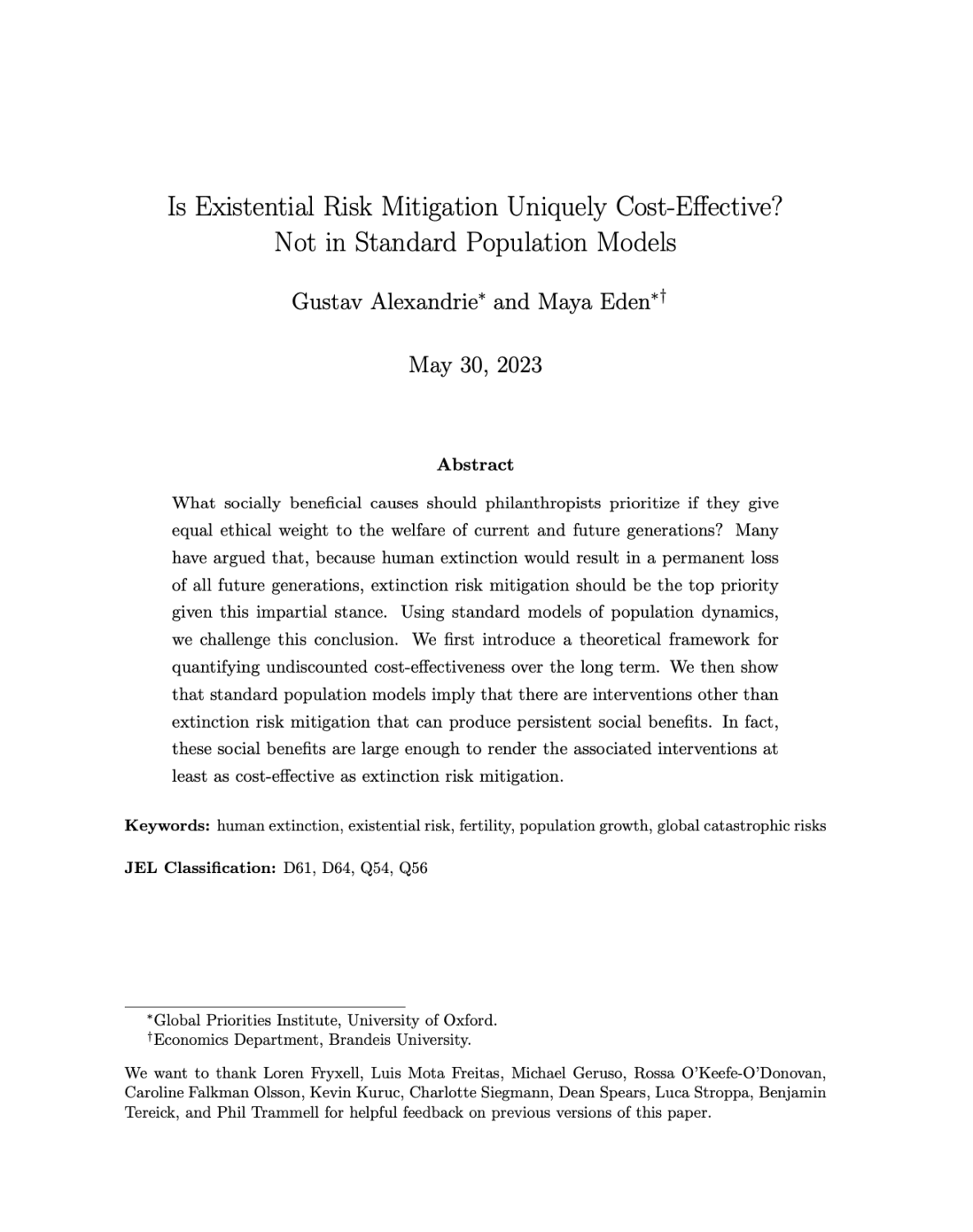Is Existential Risk Mitigation Uniquely Cost-Effective? Not in Standard Population Models
Gustav Alexandrie (Global Priorities Institute, University of Oxford) and Maya Eden (Brandeis University)
GPI Working Paper No. 5-2023
What socially beneficial causes should philanthropists prioritize if they give equal ethical weight to the welfare of current and future generations? Many have argued that, because human extinction would result in a permanent loss of all future generations, extinction risk mitigation should be the top priority given this impartial stance. Using standard models of population dynamics, we challenge this conclusion. We first introduce a theoretical framework for quantifying undiscounted cost-effectiveness over the long term. We then show that standard population models imply that there are interventions other than extinction risk mitigation that can produce persistent social benefits. In fact, these social benefits are large enough to render the associated interventions at least as cost-effective as extinction risk mitigation.
Other working papers
Once More, Without Feeling – Andreas Mogensen (Global Priorities Institute, University of Oxford)
I argue for a pluralist theory of moral standing, on which both welfare subjectivity and autonomy can confer moral status. I argue that autonomy doesn’t entail welfare subjectivity, but can ground moral standing in its absence. Although I highlight the existence of plausible views on which autonomy entails phenomenal consciousness, I primarily emphasize the need for philosophical debates about the relationship between phenomenal consciousness and moral standing to engage with neglected questions about the nature…
The asymmetry, uncertainty, and the long term – Teruji Thomas (Global Priorities Institute, Oxford University)
The Asymmetry is the view in population ethics that, while we ought to avoid creating additional bad lives, there is no requirement to create additional good ones. The question is how to embed this view in a complete normative theory, and in particular one that treats uncertainty in a plausible way. After reviewing…
Longtermism in an Infinite World – Christian J. Tarsney (Population Wellbeing Initiative, University of Texas at Austin) and Hayden Wilkinson (Global Priorities Institute, University of Oxford)
The case for longtermism depends on the vast potential scale of the future. But that same vastness also threatens to undermine the case for longtermism: If the future contains infinite value, then many theories of value that support longtermism (e.g., risk-neutral total utilitarianism) seem to imply that no available action is better than any other. And some strategies for avoiding this conclusion (e.g., exponential time discounting) yield views that…

